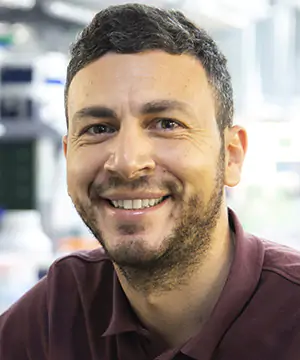The concept that cancer cells become addicted to certain nutrients for survival has emerged as a major metabolic vulnerability that can be exploited for cancer therapy. We aim to identify the key mechanisms of nutrient delivery that need to be targeted, through dietary and/or pharmacological interventions, for the treatment of pancreatic cancer.
Professor Gennaro Napolitano
Background
Pancreatic ductal adenocarcinoma is the fourth leading cause of cancer-associated deaths worldwide, with one of the lowest survival rates among all cancers. This unfortunate record mainly stems from the lack of tools for early diagnosis and from the absence of effective therapies. Indeed, most patients die within one year after diagnosis. Thus, we are in a desperate need of new anti-cancer treatments.
Over the last years, a clear connection between diet and cancer progression has emerged. Interestingly, pancreatic cancer cells need the key metabolite cysteine, an amino acid that can be either obtained by the diet or synthesized by our body, to support their uncontrolled proliferation and growth.
Aims and objectives
In this project, we aim to starve pancreatic cancer cells of cysteine and determine whether this approach may represent a new therapeutic strategy to fight this devastating cancer. To achieve this, we need a comprehensive and detailed picture of the molecular mechanisms controlling cysteine availability in pancreatic cancer cells.
Our preliminary results and published studies have shown that cancer cells can obtain cysteine from three main routes: the diet (cysteine is contained in our meals), from neighboring cells able to synthesize it from methionine (another amino acid obtained through the diet), or from small cellular organelles, known as lysosomes, that can process and provide nutrients.
We aim to use dietary and genetic strategies to block each of these cysteine sources, either alone or in combination, and evaluate their effect on pancreatic cancer growth.
How it will be done
To determine whether we can use nutritional approaches to improve cancer therapy, first we need to understand the molecular basis underlying the complex connection between cancer growth and metabolism.
For this reason, we will need to use a well-established mouse model of pancreatic ductal adenocarcinoma, known as “KPC” mice. In these mice, we will block the systemic, biosynthetic, and lysosomal routes of cysteine delivery to cancer cells via dietary and genetic approaches.
Using these tools, we will evaluate the effects of these strategies on pancreatic tumor formation and development.
Potential impact
How important is our diet during cancer treatment? Can we help cancer therapy by avoiding or reducing certain kinds of food? Our project aims to address these questions, focusing on the role of cysteine in pancreatic cancer. High levels of cysteine are contained in many foods we eat.
Our project aims to understand whether reducing these high cysteine-containing foods may improve the clinical outcome of pancreatic cancer patients. We aim to identify the key cellular processes that need to be targeted, through dietary and/or pharmacological approaches, to fight pancreatic cancer.
This project will generate new knowledge and novel strategies for the treatment of this tumor and will shed light on the complex connection between diet, metabolism and cancer progression.
